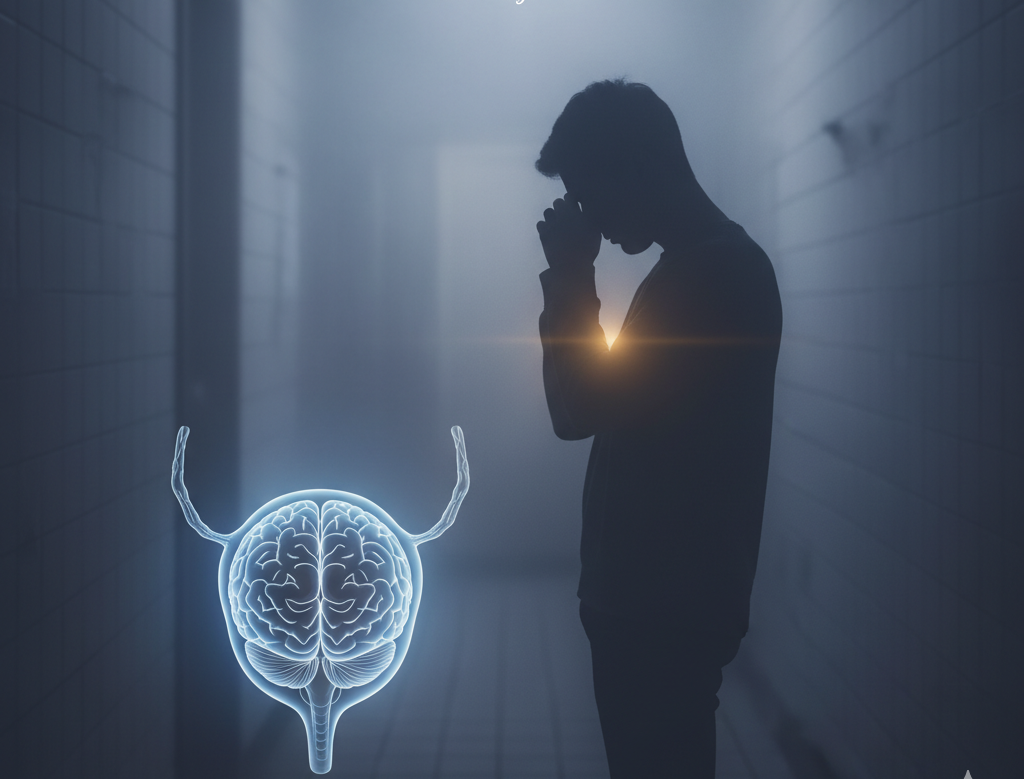It’s a connection we often don’t talk about, but it’s a very real one: the link between chronic urinary conditions and mental health. Living with a bladder or kidney issue isn’t just a physical struggle; it can take a significant emotional and psychological toll. From anxiety to depression, the impact can be profound and life-altering.
The Cycle of Stress and Symptoms
Chronic urological conditions, such as overactive bladder (OAB), interstitial cystitis (IC), or even recurrent kidney stones, are often unpredictable and can lead to a state of constant stress. The worry about finding a bathroom, the fear of an embarrassing accident, or the persistent pain can trigger a fight-or-flight response, keeping your body in a state of high alert.
This constant stress isn’t just in your head. It can actually worsen physical symptoms. The nervous system that controls your bladder is closely linked to the one that manages stress. When you’re anxious, your muscles tense up—including your pelvic floor. This tension can aggravate bladder pain, increase urinary frequency, and even make it harder to empty your bladder completely. It’s a vicious cycle where mental stress leads to physical symptoms, which in turn fuels more mental stress.
Loneliness and Social Isolation
Chronic urinary issues can lead to social withdrawal and isolation. Imagine having to constantly plan your day around bathroom locations, or being unable to enjoy a meal out with friends because of bladder pain. These restrictions can make people feel like they’re a burden or that their condition is too difficult for others to understand. This isolation can lead to feelings of loneliness and sadness, which are key symptoms of depression.
The embarrassment associated with incontinence or the need for frequent urination can also make people hesitant to share their struggles. They might feel ashamed, leading them to suffer in silence rather than seek support from friends, family, or even a mental health professional.
The Impact on Intimacy
Urological conditions can also severely impact sexual health and intimacy, adding another layer to the emotional burden. For men, erectile dysfunction (ED) can cause feelings of inadequacy and frustration. For women, painful intercourse related to bladder issues can lead to anxiety and avoidance of intimacy. These problems can strain relationships and contribute to feelings of hopelessness and low self-worth.
What You Can Do: Breaking the Cycle
If you’re struggling with both a chronic urological condition and your mental health, you’re not alone, and there is help available.
- Talk to Your Urologist: Be open about the emotional impact of your condition. They might be able to offer new treatment options or refer you to specialists who can help manage your symptoms better.
- Seek Mental Health Support: A therapist or counselor can provide tools to manage anxiety and depression. Cognitive-behavioral therapy (CBT), for example, is a powerful way to change negative thought patterns related to your condition.
- Find a Support Group: Connecting with others who share your struggles can be incredibly validating. Support groups, both in-person and online, offer a safe space to share experiences and learn coping strategies.
- Practice Mindfulness: Techniques like meditation, deep breathing exercises, and yoga can help calm your nervous system, reduce stress, and, as a result, lessen the physical symptoms of your condition.
Your urinary health is a key part of your overall well-being. By acknowledging the link between your physical and mental health, you can take a holistic approach to healing and find a path toward a better quality of life.

